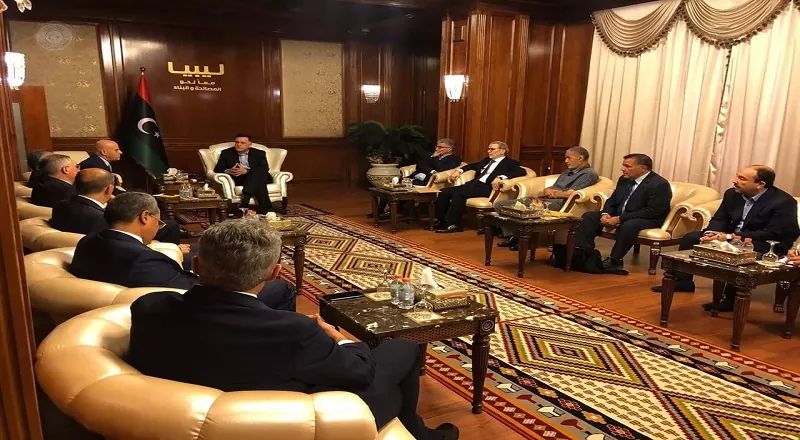By Sami Zaptia.

London, 1 August 2019:
Libya’s National Oil Corporation (NOC) and Italian oil major Eni announced yesterday the completion of Phase 2 of the Bahr Essalam offshore gas project.
The project is a joint venture between the two companies operated by NOC subsidiary Mellitah Oil & Gas Company (MOG).
The NOC said that production from the field’s ninth well began earlier this month, while work on the last well is currently in progress.
It reported that phase 2 of the project increases field production from 995 million standard cubic feet of gas per day (MMSCFD) to 1,100 million MMSCFD and completes the phased development of Libya’s largest offshore producing gas field.
The development of Libya’s ‘A’ and ‘E’ offshore structures was discussed in Tripoli yesterday at the Tripoli governments Office at a meeting of Presidency Council and Government of National Accord head Faiez Sarraj, NOC chairman Mustafa Sanalla and Eni’s CEO Mr Claudio Descalzi.
This followed on from the approval of a field development and implementation plan in March this year.
The NOC said that the estimated total cost of the project is US$ 5.6 billion, with production expected to start in the third quarter of 2022 (‘A’) and 2024 (‘E’) respectively – adding 760 million MMSCFD and 35,000 barrels of condensate per day to Libya’s production.
The completion of the Wafa Inlet Gas Compression (WIGC) project was also welcomed by parties – a significant onshore achievement providing increased gas supply to the domestic market, the NOC reported.
Cooperation between Eni and the General Electricity Company of Libya (GECOL) to increase electricity generation through the deployment of typical power generation and renewable energy projects was also reviewed, the report added.
According to the NOC’s chairman: “The completion of Phase 2 is a testament to NOC’s ongoing partnership with key international players and our ability to drive international investment to the Libyan energy sector, despite an ongoing backdrop of conflict.
Increased domestic gas production strengthens our energy security and reduces our dependence on costly fuel imports. Our longstanding cooperation with Eni also helps generate new economic and training opportunities for our country – and its people.
The advancement of renewable energy projects is a testament to our shared vision of a sustainable energy sector and a diversified economy.”, he concluded.








